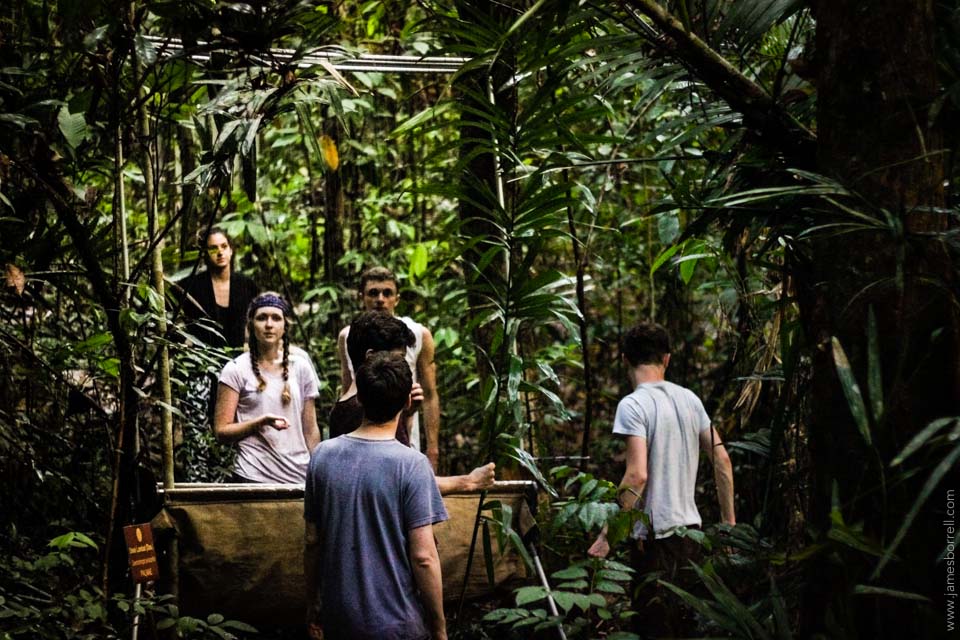10 Things To Consider In A Conservation Volunteering Opportunity
I often get emails from school and university students looking for conservation fieldwork experience. I try to offer as much practical advice as I can, but telling the difference between some of the many, many, volunteering opportunities available is difficult.
In hindsight and with experience, the positives and negatives become clearer, but when you’re just starting out it can be confusing. I’ve already mentioned a few of the conservation organizations I really rate, but here’s a few questions to ask yourself when evaluating the merits of any conservation volunteering opportunity.
1. Where does your money go?
Probably one of the single biggest factors, especially for students, is cost. So it’s important that you know where your hard earned money is spent. Is the majority spent on practical projects in the field? Or does the organisation have significant overheads running a large office in the UK or America perhaps.
2. Do they work with in country partners?
With conservation volunteers frequently traveling from more developed countries, it’s important that organizations support projects and scientists working from within the host country in order to build capacity for the future.
Not only is conservation work and research likely to be more effective when guided by local scientists, but when you and the organization return home or move on to new destinations, it’s important to know that someone will be there able to continue the project.
3. Where do they publish their data and research?
What happens to the results of all your hard work? Does the organization produce reports or peer reviewed papers? If so, they should be available on their website or in journals online. If you can’t find anything, don’t be afraid to ask – a good organization will be more than happy to show you.
4. Do they have an effective risk management strategy?
In other words, are they safe? Conservation expeditions often involve traveling to remote places, away from immediate medical help should you need it. Reputable organizations will have a carefully thought risk management strategy that guides what teams can do out in the field. In case of an emergency there should also be an evacuation plan, which importantly, should have been tested in advance.
5. Who will you go with?
Not necessarily an obvious thing to consider, but the people you spend your time volunteering with will have a huge impact on your experience.
I’m a big advocate for traveling independently and making new friends, from a variety of different backgrounds. Increasingly, some organizations are approaching schools and offering to take whole classes on expeditions. Often, this is combined with an offer to teachers that if they can persuade a certain number of students to sign up, then the teacher can come along for free. I don’t think this is good practice.
I have many excellent teacher friends who lead expeditions in their spare time, but they don’t run their expeditions like this.
6. Size of the team?
A similar issue, is the size of the team that you will be working with. Generally, smaller is better I think, as you have a more personal experience and can receive better training. However, sometimes costs can be kept down with larger groups.
7. What sort of an application process to they have?
I’m a firm believer that conservation organizations should run an application process to recruit their volunteers. This helps make sure that you as a volunteer are suitable for their specific project, and helps you find out more about the organization before you necessarily put any money down.
If there isn’t an application process, then you may find volunteers arriving in the field with a broad spectrum of expectations – some of which it might not be met. This can have a knock on effect on both your experience, and the quality of fieldwork.
8. What equipment will you need to provide yourself?
Often you will need to provide your own personal equipment. This is not a bad thing, but it’s important that organizations are up front about any costs beyond your place on an expeditions. It’s also a good idea to look at flight costs (if applicable) before making plans, as these are not normally included.
9. Field logistics and facilities…
Where will you be working? What are the conditions like in the field? These are all important things to know in advance. Are you based in an area good for wildlife, or perhaps you are close to a village allowing interaction with local communities. Ensure that the reality will meet your expectations.
10. Can you speak to past volunteers?
Often the best way to find out what an experience will be like, is to talk to someone with who has recently returned. Good organizations will have a healthy network of past volunteers who are frequently very keen to talk to potential new volunteers.


